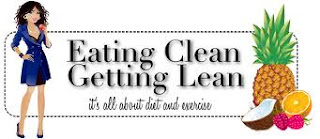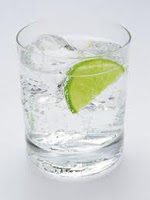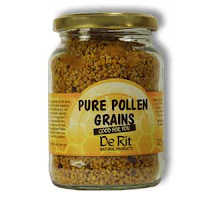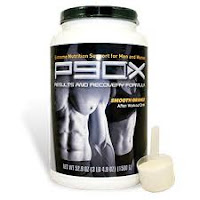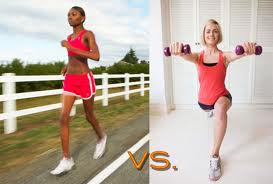Make sure to eat breakfast within 30 minutes of waking to turn on your metabolism.
Get 8-9 hours of sleep for your body to efficiently recover. Sleep is JUST AS IMPORTANT as diet and exercise for all around health and results.
Any exercise is better than none. Even 5 minutes of light jogging or just some push-ups, sit-ups, or jumping jacks during commercials helps. Everything helps, everything. If you need exercise tips or help developing an exercise program please message me or visit Team Beachbody to have me as your personal fitness coach for FREE!
 Do not say you don’t have time. How many minutes do you spend watching TV the day you say “I don’t have time to cook” or “I don’t have time to work out”. You have work and school? TOO BAD!!! I have 2 kids, a husband and a dog, but I find 45-60 minutes a day to workout. I treat it as a job not an option. I HAVE to workout because I make it that way, no excuses. (Unless sick)
Do not say you don’t have time. How many minutes do you spend watching TV the day you say “I don’t have time to cook” or “I don’t have time to work out”. You have work and school? TOO BAD!!! I have 2 kids, a husband and a dog, but I find 45-60 minutes a day to workout. I treat it as a job not an option. I HAVE to workout because I make it that way, no excuses. (Unless sick)“Super” Foods
Beans and Legumes: High in fiber, protein, Iron, and folate. They are a great source of fiber, and soybeans are very high in complete protein to help build and maintain muscle.
Green Vegetables: They help to neutralize free radicals, which are molecules that accelerate the aging process. They are loaded in vitamins like A, C, and K and minerals that include magnesium and calcium for bone and muscle development. Spinach and broccoli are two of the best.
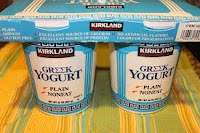 Dairy: Yogurt and cheeses are a great source of calcium. Some studies have found calcium to not only improve bone strength but also to help with weight loss. It is believed that calcium can increase the breakdown of fats and hinder the development of new fat. But you must follow the proper portion sizes. This doesn’t mean you can go and eat an entire brick of cheese or have cheese every day. I really like non fat plain greek yogurt (no fruit in bottom) in which I add fresh fruit and a dab of agave nectar or honey to sweeten. If you are seriously trying to drop some weight, I would stay away from the majority of dairy until you reach your goal.
Dairy: Yogurt and cheeses are a great source of calcium. Some studies have found calcium to not only improve bone strength but also to help with weight loss. It is believed that calcium can increase the breakdown of fats and hinder the development of new fat. But you must follow the proper portion sizes. This doesn’t mean you can go and eat an entire brick of cheese or have cheese every day. I really like non fat plain greek yogurt (no fruit in bottom) in which I add fresh fruit and a dab of agave nectar or honey to sweeten. If you are seriously trying to drop some weight, I would stay away from the majority of dairy until you reach your goal.Peanut or Almond Butter: Unsalted natural peanut or almond butter is loaded with monounsaturated fats and can increase testosterone. This can help with muscle development and weight loss. The more lean muscle your body has the faster your metabolism will be capable of working and the more fat you can burn. Almond butter contains more vitamin E and fiber than peanut butter, but both will do the trick. Remember to limit your intake of these to about 2 tbsp. A day because of the fat content, don’t overdue it or it defeats the purpose.
 Oils: Olive, Canola, peanut, and sesame oils are all great option. Each has a different temperature at which they will lose their valuable properties if reached, so do research on which works best for you. They will help with cholesterol and are high in good fats (monounsaturated) and Vitamin E. They are great when used in moderation.
Oils: Olive, Canola, peanut, and sesame oils are all great option. Each has a different temperature at which they will lose their valuable properties if reached, so do research on which works best for you. They will help with cholesterol and are high in good fats (monounsaturated) and Vitamin E. They are great when used in moderation.I usually opt for Ezekeil bread that can be found in the freezer section at the grocery store because it has the least amount of ingredients and is all fresh! Just microwave or toast and then make your sandwich or add almond butter for a snack.
Whey: Whey protein is a high quality protein that contains essential amino acids that help build muscle and burn fat. Finding a good protein powder is not difficult, you need to look at just a few simple things. First off, you do not need one that contains more than 25 grams per serving, as your body can typically only process 25 grams of protein at one time. You also want to look for mostly whey isolates, try to find a powder that says it is at least 75-80% isolates. Also check the ingredients, make sure there are not a lot of added unnecessary ingredients (a little glutamine is OK). Side Note – Ricotta cheese is made from whey, so maybe try using it when your meals call for cheese.
Berries: Essential for antioxidants, fiber, vitamin C, and more. Antioxidants will help fight against cancers and heart disease. They are also high in fiber and help to regulate your bowel movements.
Other specific superfoods that you may want to look into:
(These can all be added to your smoothie or post-workout shakes)
Spirulina: Spirulina has more nutrients per acre than any other food. It contains all essential and non-essential amino acids, which are needed to build and utilize protein. It comes in a green algae powder you can add to smoothies or shakes. Spirulina is also found in Shakeology as well!
Flaxseed: Flaxseed is known to help lower bad cholesterol and to regulate bowel movements. This is important as it helps to flush the “junk” out of your colon and your body. It has other benefits you can look up as well.
Bee-Pollen: Bee-pollen comes in a bottle and is a good source of protein.
Glutamine: Glutamine helps with muscle soreness and metabolism, it has no common side effects or horrible uncommon ones either. Glutamine is necessary for protein synthesis during stressful times, like during an intense workout. Many people use it with, or in place of, creatine.
Raw Foods
When you cook meats it destroys 50% of the proteins available for your body. When you even as much as steam veggies it destroys a large amounts of the nutrients they may hopefully still contain, depending on how depleted the soil they were grown in was. So even when eating healthy, you can be getting a lot less than you think. You should eat over 50% raw foods every meal if can. Your body actually attacks cooked foods as a toxin, increasing white cell count. So whenever possible it is best to eat veggies raw. Sushi is also a good option, so the fish can maintain its vitamins and minerals in their entirety. Of course, if the only way for you to be able to eat veggies is to grill them or steam and add some seasoning then by all means do so. Some of the nutritional value from vegetables is always better than none. But getting the full amount of vitamins and minerals the body needs is better than some. Always strive to eat the best foods the best possible way as much as possible. Snack on raw veggies, fruits, and fish (sushi/sashimi) as often as possible.
Juicing
A good way to get fresh, raw veggies is to juice. You will get all the enzymes and nutrients that are released when the cell walls are broken. There is no cooking involved so you will get everything they were meant to provide. What I like best about this is the fact that you can buy a multitude of different fruits and veggies and mix them into your juice. Just use a basic base of carrots and an apple to help with taste, then just throw in different veggies every week. One week try out daikon radishes or collard greens, then throw in some rhubarb, beets, kale, or other veggies you may never eat. This way you are getting a wide spectrum of nutrients. There are many different kinds of juicers, and you will have to do your own research for which one will best suit you. It is not a good idea to juice too many fruits as you get a high concentration of fructose. The only downfall to this is a loss of fiber. When you juice the veggies the pulp takes all the fiber with it. But as long as you are not relying on only these veggies and fruits that you drink, you will be fine. You should still be eating regular servings of veggies and fruit everyday, juicing is just supplemental to those you already eat.
High Fructose Corn Syrup (HFCS) HFCS is in everything processed these days, ketchup, snack foods, and especially soda. It is a major contributor to the obesity epidemic, and is an unnecessary and man-made substance that our bodies are not built to process. HFCS shuts off your body’s natural appetite control. This allows you to eat far beyond what your body would normally be able to consume. It is a way to trick your body into consuming more, because then you have to spend more money (not to mention it is much cheaper to process foods with HFCS than natural sugar). In 1970 Americans ate an average of 1/2 lb. of HFCS a year, by the 1990’s it had risen to an average of 62 lbs. per year. It rose at an alarming rate, along with obesity. It didn’t single-handedly cause this mind you, but it certainly took its toll. The corn companies are defending it, but it isn’t actually the corn syrup that is the problem. The issue is the concentrated amount of fructose they use to sweeten it. The glucose in corn syrup can be burned off quickly, but the fructose cannot and is stored as fat. Our bodies can process a normal amount of fructose from fruits and honey, but not the large, concentrated amounts in HFCS. HFCS also doesn’t trigger your body to produce insulin, which helps to regulate your hunger. It also doesn’t trigger production of leptin (like normal sugar), which is a protein that helps regulate how much fat you store. So HFCS directly controls your body’s ability to create and store fat and also shuts off your hunger mechanism. So you can drink as much soda as you like, eat as many Little Debbie snacks as you want, or eat McDonald’s until you burst. Your body burns what it can and then stores all the extra calories as fat.
Supplementing For Muscle Maintenance
When waking Up
– Glutamine, your body is without sufficient nutrition after 6-8 hours.
– Consume some lean protein and complex carbs to give your body something to start its metabolism. This can be covered with a protein shake and a banana or apple if you are in a rush. You MUST eat within 30 minutes of waking.
Before workout
– Creatine, with a sugar drink, not citrus or it turns into useless creatinine. This provides you with energy for your workout, and water to your muscles. Grape juice is one of the best to take it with. 45-60 minutes before workout
After Workout
– Whey protein (To have available immediately to re-build muscles), Glutamine (To help with muscle repair and soreness, keep body from breaking down muscle), Spirulina (For all amino acids to make protein chains efficiently)
– Creatine, (For muscle repair and gains, limits muscle damage, is absorbed best after workouts when insulin levels are high). Take with a non-acidic, sugary drink. (Acidic drinks turn it into useless creatinine, grape juice is one of the best to take it with)
Add extra water to your protein shake for all the extra stuff you have added. This will assist with cell hydration.
You can also drink results and recovery drink from Beachbody, post workout to help repair muscles and build lean muscle as well as reduce muscle soreness.
Before Bed
– Whey and glutamine, To help with muscle repair. Muscle repair happens most during REM 4 deep sleep, when your body is experiencing a low level of these elements and needs them to make gains and prevent muscle loss. You will be without nutrition for 6-8 hours, it is important to have these in your system and available. Eat or add peanut butter (or another fat) to your protein to slow absorption of the protein through the night.
– L-Arganine, Helps your body to raise your level of growth hormones naturally. It is an amino acid.
Water or Gatorade?
Water should be in your hand at all times of the day. When you are working out you should ideally be drinking close to a cup of water every 15-20 mins. During a workout. Also, drink 1-2 cups a couple hours before your workout and then another 1-2 cups about 20-30 minutes prior to be sufficiently hydrated. It is recommended that a sedentary person drink 8 glasses a day. If you are reading this then chances are you are not sedentary, so you should be consuming at least 12-15 cups a day. I carry a water bottle with me at all times so I am constantly sipping from it, I never go ANYWHERE without it. You should also drink at least a cup of water for every pound of water weight you lost after a workout, just weigh yourself before and after and drink as many glasses as pounds you lost. As far as sports drinks go, there is a time when they are beneficial and a time when they can be harmful. First off, do not drink sports drinks all the time thinking it is ok because at least it isn’t soda. Sports drinks can be very bad for you if not consumed properly and in moderation. A lot of them contain HFCS, which you should know about from my article, and ALL of them contain sugar. You should replace soda and other sugary drinks with WATER! Sports drinks are only applicable to those who are going to be working out for more than an hour. If you are working out for less then water is fine, or if you would like then you can drink a little bit of Gatorade after your workout. Check the ingredients on the sports drink, do not assume they are all the same or what you need. The one you choose should ideally contain sucrose and glucose only if possible. HFCS is not good, and fructose gives some people stomach issues, but not everyone. It should 5-8% carbohydrates (no more), 50-80 calories max, and 120-170 Mg of sodium. Do not drink Coca Cola or Orange juice, the high concentration of sugars are bad for you and can defeat the purpose. Sports drinks are meant to provide a quick amount of carbs for you to convert to glucose and also sodium to help rehydrate you from all the sweating. Here is a recipe to make your own drink to save money <<< 8 oz ice water or caffeine-free lemon tea 1 tablespoon sugar Pinch of salt (1/16 teaspoon) 1 ounce orange juice or 2 tablespoons lemon juice. Dissolve the sugar and salt in the hot tea or a little hot water. Add juice and remaining ice water or tea. >>> Again, you need only water unless you are working out for more than an hour. Then it is a good idea to supplement your water with an 8 oz. sports every hour past the first hour. If you do use one, drink it over the period of time you are exercising. If you sweat a lot a little bit can’t hurt after your workout also to help replenish sodium.
Sleep
Sleep is more important than most people think. At certain times that you sleep is when your muscles recover. When you sleep you go through cycles, they are called REM, NREM I, NREM II, NREM III, and NREM IV. When you first sleep you begin in REM and then you cycle from NREMI to NREM IV. As the night goes on your REM periods last longer. REM cycles about every 90 minutes on average, and your body needs this. That is why it is necessary for you to get 7-9 hours of sleep, so your body has sufficient time to go through the cycles. NREM III and NREM IV is are the periods of deepest sleep. They are also very important, and happen earlier in the evening. This is thought to happen because your body wants to get the most important sleep first in case you do not give it a sufficient amount of time to recharge and heal. NREM IV is what you need to be focused on. This is slow wave sleep (referring to your brain patterns) and is when your body is the most relaxed. This is also when your body repairs damaged tissue, which is your very goal when working out. The more time you spend in NREM IV the more time your body has to heal and recover. REM sleep also has its benefits, especially for energy, and so this is why a full nights rest is crucial to recovery and gains. When you sleep your body also releases growth hormones, one which some people supplement is L-Arganine. As you age your body loses its ability to do so efficiently, and that is why it is a consideration to those over 30 to supplement with L-Arganine. This is something you can research and decide for yourself, but it is not considered too important until past the age of 30 and especially after 40.
Cardio vs. Strength Training
Ideally it is best to do both cardio workouts and strength training. Strength training builds lean muscle which helps to increase your metabolism and your resting heart rate. The more lean muscle mass you have the more calories your body will use when at rest. A common misconception is that you burn fat while you are working out and running. This is not true. You do burn very miniscule amounts of fat when working out, but when you are resting after a workout is when you really get results. With lean muscle you make your body require more calories for natural functions, so you are able to take in more without gaining. When you do cardio, especially in short bursts, you train your metabolism to run faster and more efficiently. This allows your body to burn calories faster and more efficiently. It is a good idea to consider strength training between 3-4 days a week, with rest periods in between working out the same muscles. On these rest days, these can be your cardio days. You can also do cardio on days that you work out. It is best to do cardio after you do strength training. Also, another misconception is that fat can be turned into muscle. This is also untrue. Do not bulk up with fat and think you are going to turn it all into muscle and look like Arnold. Just balance a workout schedule of strength training and cardio and you will reap the best benefits. Cardio is strength training for your heart. It increases blood flow and helps to clean out and strengthen arteries. You can even make your heart grow with enough cardio exercises by creating more vessels for efficiency. Don’t be scared of people who tell you cardio will diminish your muscle gains. When you do cardio, such as running, your body takes carbs form your muscle to break down into glucose for energy. It is a much more complicated process than that with ATP and proteins……. But that is the just of it. After about 20 minutes your carbohydrates form your muscles and probably those you may have consumed before your workout are depleted. Your body then turns to your liver, and finally your fat is the last to go. (sadly I know). This is different than the proteins people get worried about breaking down in your muscles and hindering gains. This can happen after about 20-30 minutes of solid cardio. As a good rule of thumb it is good for those who are mainly concerned about gaining muscle to only do solid cardio focused workouts for about a half hour. If you are going to go running for an hour or more, it is a good idea to consume carbs from raisins, gels, sports drinks, etc. If you feel like running for an hour then do it, you are not going to lose a half inch off your bicep. This would only hinder your gains if it was a constant practice, this is why marathon runners are so lean. This being said, cardio is important along with your strength training program, you have to train your heart also. Other areas that can improve your health and fitness are flexibility and rest.
I really hope this article gave you some helpful hints in getting started or fine tuning your exercise and fitness routines. If you need some extra motivation and support please feel free to contact me so that I can personally coach you through this process! I’d love to help you out!

